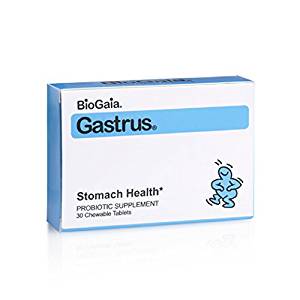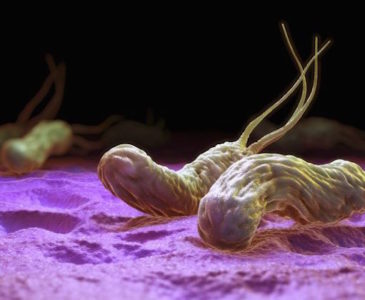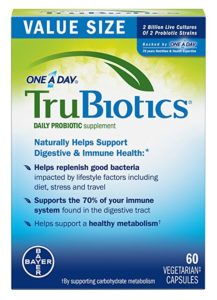What is Helicobacter pylori?
Helicobacter pylori (H. pylori) is a gram-negative bacterium with spiral shape. It has the unique ability to colonize the human mucosa in the stomach. Due to it’s particular properties it is capable of infecting more than half of the world’s population. H. pylori infection often causes chronic gastritis and may result in peptic ulcer disease and is considered a risk factor in the development of gastric cancer and gastric lymphoma. H. pylori was classified as a type I carcinogen by the World Health Organization.
Probiotics as adjunct therapy for treating H. pylori infection.
Helicobacter pylori is extremely hard infection to eradicate even with antibiotics. The most recent research in both children and adults has showed that combination of antibiotics and probiotics is more effective than antibiotics alone.
There have been several probiotic bacteria tested for this purpose.
Lactobacillus plantarum against Helicobacter
Several strains Lactobacillus plantarum have been tested in vivo and in vitro and showed great results in inhibiting the growth of H. pylori. L. plantarum B7 was shown to inhibit the growth of H. pylori and also reduce gastric inflammation in rats. L. plantarum XB7 secrets active factors that reduce inflammation caused by H. pylori infection and can potentially be used as an additional therapy for treating H. pylori infection. Additionally, recent study with L. plantarum ZDY 2013 has demonstrated that pretreatment with this strain prior the infection positively modified intestinal microbiota and reduced inflammation compared to control group.
Lactobacillus reuters against Helicobacter

Lactobacillus reuteri DSM 17938 strain present in Biogaia probiotic named GASTRUS was used in conjunction with triple antibiotics (pantoprazole 20 mg, tetracycline 500 mg, and metronidazole 500 mg) in 45 patients in Sardinia. This treatment regimen yielded 93% eradication of the infection. This study is in line with other clinical studies. Remember that strain is extremely important and this particular strain was shown to be one of the most potent strains among all tested.
Lactobacillus acidophilus against Helicobacter
Lactobacillus acidophilus La5 in combination with Bifidobacterium animalis subs. lactis BB-12 was also shown to be successful in eradication rates, incidence of any adverse events and the incidence of antibiotic-associated diarrhoea. This particular probiotic is present in TruBiotics. Other studies also found this combination as an effective co-treatment.
Lactobacillus fermentum against Helicobacter
Lactobacillus fermentum isolated from fermented rice noodles also had inhibitory activity towards several clinical H. polo strains suggesting that consumption fermented foods could potentially be beneficial. Other L. fermentum strains have also been shown to prevent or decrease inflammation caused by H. pylori.
Other probiotic Lactobacilli like L. paracasei also demonstrated great results in treating H. pylori infection.
Synbiotics
Synbiotic is a combination of probiotics (live beneficial bacteria) and probiotics (ingredients that promote growth of beneficial bacteria). Some synbiotics, like Maflor, containing Bifidobacterium lactis and inulin, have also been successfully demonstrated in eradicating H. pylori infection in children.
Conclusion
Overall most of the studies today suggest that certain probiotics may indeed be helpful in preventing and eradicating H. pylori in section when used as a pretreatment or as an adjunct therapy to multiple antibiotic treatment.



Добрий день . Меня интерисует какие пробиотики нам нужны каждый день или всё же периодично? Так же после болезней и антибиотиков. И есть ли детские пробиотики ? Lactibiane и BioGaia Это пробиотики которые мы переодически принимаем. Что вы скажете , хороши ли они ? Живём мы во Франции, здесь они очень популярны . Спасибо
Biogaia это очень хороший клинически исследований продукт. В Европе практически все пробиотики клинически исследованы. Однако, то что подходит одному, может не подойти другому, поэтому я обычно делаю индивидуальные рекомендации во время консультаций. Буду рада вам помочь подобрать индивидуальные формулы. Информацию о консультациях можно почитать здесь: https://mygutmatters.com/work-with-karina/